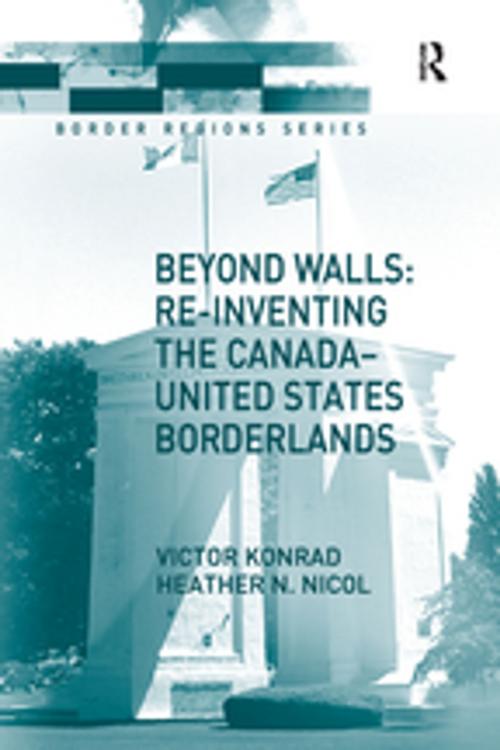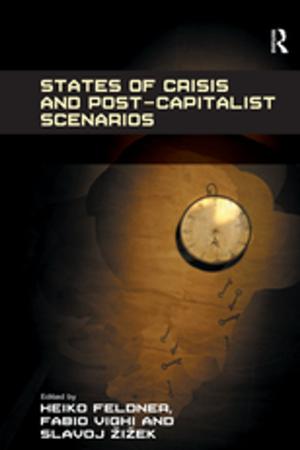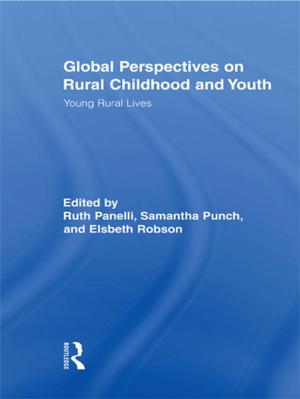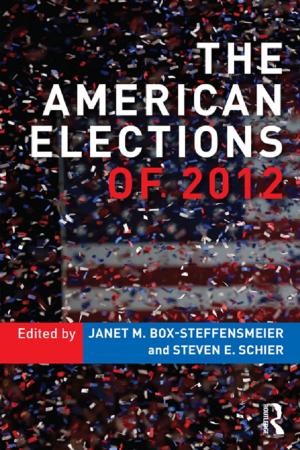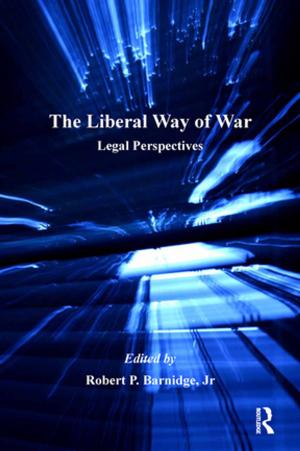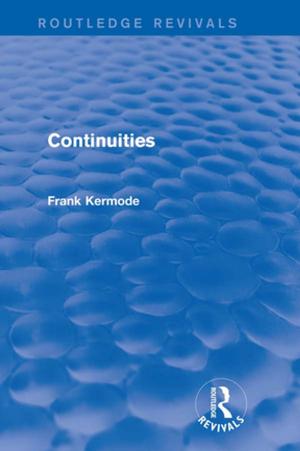Beyond Walls: Re-inventing the Canada-United States Borderlands
Nonfiction, Social & Cultural Studies, Social Science, Human Geography| Author: | Victor Konrad, Heather Nicol | ISBN: | 9781351955454 |
| Publisher: | Taylor and Francis | Publication: | December 5, 2016 |
| Imprint: | Routledge | Language: | English |
| Author: | Victor Konrad, Heather Nicol |
| ISBN: | 9781351955454 |
| Publisher: | Taylor and Francis |
| Publication: | December 5, 2016 |
| Imprint: | Routledge |
| Language: | English |
September 11, 2001 marked the beginning of a new era of security imperatives for many countries. The border between Canada and the United States suddenly emerged from relative obscurity to become a focus of constant attention by media, federal and state/provincial governments on both sides of the boundary, and the public at large. This book provides a comprehensive examination of the Canada-USA border in its 21st century form, placing it within the context of border and borderlands theory, globalization and the changing geopolitical dialogue. It argues that this border has been reinvented as a 'state of the art', technology-steeped crossing system, while the image of the border has been engineered to appear consistent with the 'friendly' border of the past. It shows how a border can evolve to a heightened level of security and yet continue to function well, sustaining the massive flow of trade. It argues whether, in doing so, the US-Canada border offers a model for future borderlands. Although this model is still evolving and still aspires toward better management practices, the template may prove useful, not only for North America, but also in conflict border zones as well as the meshed border regions of the EU, Africa's artificial line boundaries and other global situations.
September 11, 2001 marked the beginning of a new era of security imperatives for many countries. The border between Canada and the United States suddenly emerged from relative obscurity to become a focus of constant attention by media, federal and state/provincial governments on both sides of the boundary, and the public at large. This book provides a comprehensive examination of the Canada-USA border in its 21st century form, placing it within the context of border and borderlands theory, globalization and the changing geopolitical dialogue. It argues that this border has been reinvented as a 'state of the art', technology-steeped crossing system, while the image of the border has been engineered to appear consistent with the 'friendly' border of the past. It shows how a border can evolve to a heightened level of security and yet continue to function well, sustaining the massive flow of trade. It argues whether, in doing so, the US-Canada border offers a model for future borderlands. Although this model is still evolving and still aspires toward better management practices, the template may prove useful, not only for North America, but also in conflict border zones as well as the meshed border regions of the EU, Africa's artificial line boundaries and other global situations.
